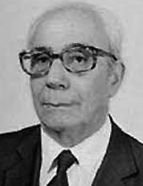

During his stay in Portugal, Pina Martins gained considerable visibility thanks to his role in organising activities aimed at promoting knowledge and research on major figures in European cultural history. His role in promoting the celebrations of the 500th anniversary of the birth of Pico della Mirandola in 1963 earned him recognition from the Italian government, which awarded him the Gold Medal for Culture in 1964. The following year, he was called upon to join the committee responsible for organising the celebrations of the 500th anniversary of the birth of Gil Vicente, alongside Vitorino Nemésio, Paulo Quintela and Justino Mendes de Almeida. Also in 1965, he co-organised a Vicentino Symposium with Ana Maria Lima Machado and, in 1972, curated the monumental exhibition commemorating the 400th anniversary of the publication of Os Lusíadas , which took place in Lisbon at the National Library. In the same year, he was appointed Director of the Portuguese Cultural Centre of the Calouste Gulbenkian Foundation in Paris, succeeding Joaquim Veríssimo Serrão. He remained in this position for the next ten years.
During his decade as director of the Portuguese Cultural Centre of the Gulbenkian Foundation, José V. de Pina Martins coordinated a diverse programme of cultural activities, established Portuguese language and culture courses in collaboration with the University of Paris VIII, ensured the continuity of the journal Arquivos do Centro Cultural Português and promoted a remarkable series of publications on Portuguese studies. His interest in old books and the history of books led to the enrichment of the Cultural Centre’s library, contributing decisively to its transformation into an international reference point. In 1974, two years after arriving in Paris, José V. de Pina Martins defended his Doctorat d’État en Lettres et Sciences Humaines at the University of Paris III, Sorbonne Nouvelle, under the supervision of Léon Bourdon and Robert Ricard. Also in 1974, following the award of his degree, he founded, together with Jean Aubin, the Centre de Recherches sur le Portugal de La Renaissance at the University of Tours, with the collaboration of the École pratique des Hautes Études ( IVe section – Études historiques et philologiques), where he was chargé de conférences , teaching Portuguese Civilisation for the next nine years. He returned to Portugal in 1983 to take up the position of Director of Education at the Calouste Gulbenkian Foundation and resume teaching at the Faculdade de Letras [School of Arts and Humanities] , from which he retired in 1990.
This work is financed by national funds through FCT - Foundation for Science and Technology, I.P, in the scope of the projects UIDB/04311/2020 and UIDP/04311/2020.
